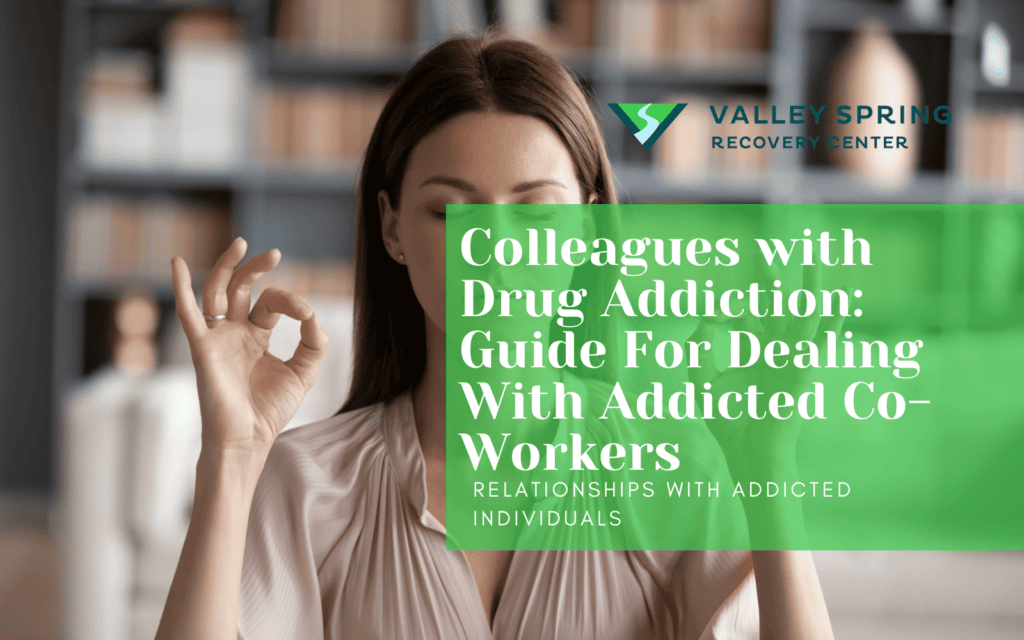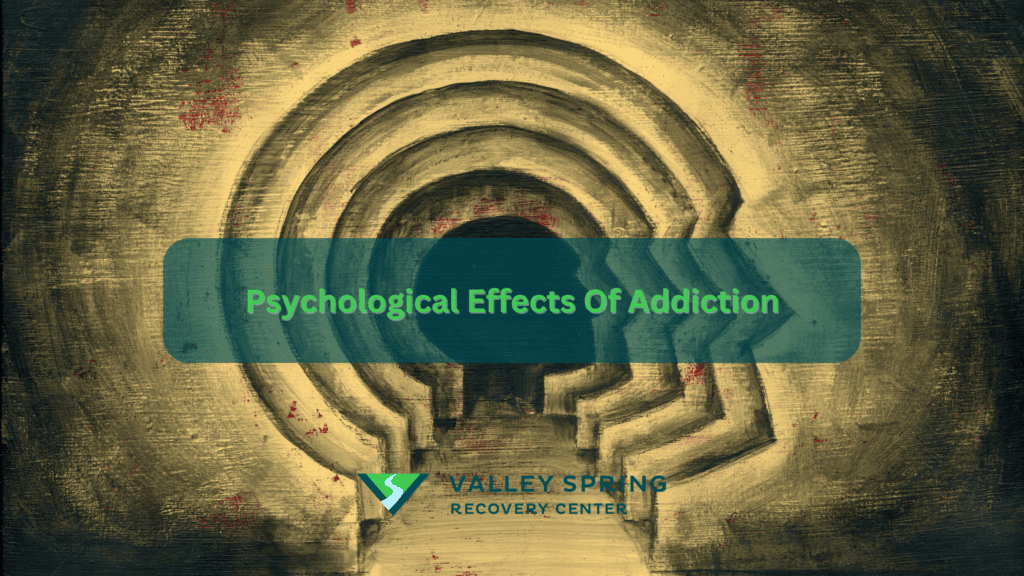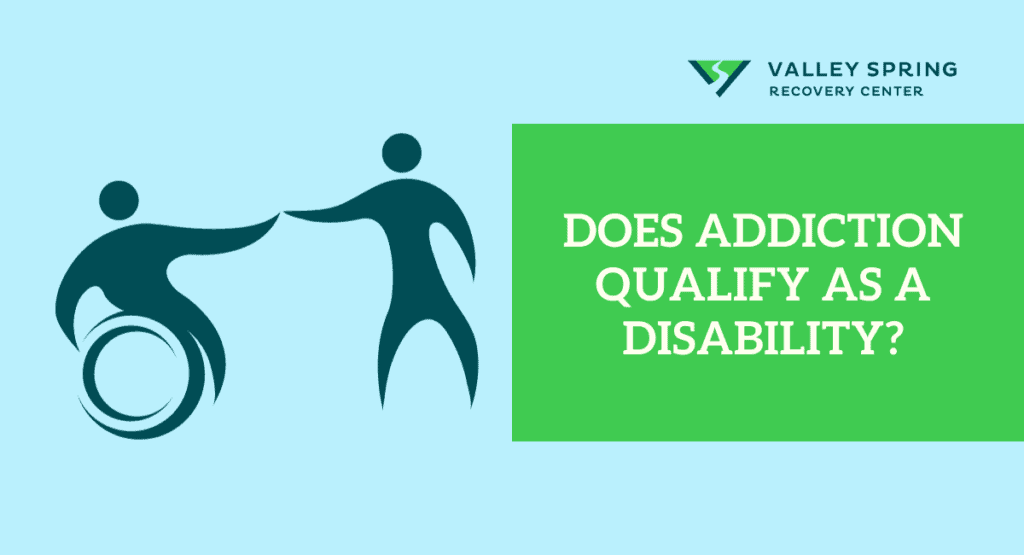Addiction significantly impacts workplaces, often infiltrating professional relationships and environments in ways that can jeopardize both financial stability and career progress. Addressing addiction in the workplace requires a nuanced approach that balances empathy with strict adherence to employment laws and workplace regulations to ensure a safe and compliant working environment.
This issue is widespread, with data from the National Survey on Drug Use and Health (NSDUH) revealing that in 2020, an estimated 46.3 million Americans aged 12 or older met the DSM-5 criteria for a substance use disorder. This includes 29.5 million people with an alcohol use disorder and 24 million with a drug use disorder. Understanding how to address addiction at work is critical, as it involves developing strategies that support affected colleagues while maintaining professional integrity and fostering a healthy work environment.
What Is Addiction In The Workplace?
Addiction is defined as a chronic, relapsing disorder characterized by the compulsive and uncontrollable use of substances despite adverse consequences which happens across multiple demographics, including the workplace. It significantly affects not only the individual facing the addiction but also the dynamics within the workplace. Potential workplace disruptions mark the impact on colleagues, decreased productivity, compromised safety, and the emotional toll of witnessing a colleague’s struggle.
Addiction often manifests in behavioral changes, absenteeism, and a decline in job performance, creating a challenging environment for both the individual and their co-workers. Understanding addiction in this context involves recognizing it as a complex issue that requires a compassionate and informed approach to support the affected individual while addressing its potential ramifications in the professional setting.

How Can Addiction Affect Co-Workers?
Addiction can impact co-workers by potentially disrupting workplace dynamics, affecting team morale and productivity, and creating challenging interpersonal situations. The workplace landscape has witnessed a staggering rise in unintended overdose deaths from nonmedical drug or alcohol use, experiencing a disconcerting 536% increase since 2011. In 2021 alone, 464 such fatalities were recorded, constituting nearly 9% of all occupational injury deaths. These statistics, tracked by the U.S. Bureau of Labor Statistics (BLS) through the Census of Fatal Occupational Injuries (CFOI) surveillance system, underscore a growing concern beyond the immediate implications for individuals. As coworkers struggle with drug addiction, the impact on their colleagues becomes more evident.
These are some aspects of the impact of addicted colleagues on coworkers:
1. Emotional Strain
Witnessing a colleague’s struggle with addiction can evoke a range of emotions, including concern, anxiety, and frustration. Coworkers may grapple with the emotional toll of observing a peer facing such a challenging and personal battle within the professional sphere.
2. Team Dynamics and Productivity
Substance abuse can disrupt team dynamics, leading to strained relationships and a decline in overall morale. Coworkers may bear the brunt of reduced productivity, missed deadlines, and an increased workload as they navigate the challenges created by their addicted colleagues.
3. Safety Concerns
The impaired judgment and cognitive function associated with drug addiction can pose safety risks in the workplace. Coworkers may find themselves in situations where the actions of their addicted colleagues compromise the well-being and safety of the entire team.
4. Professional Reputation
The actions of an addicted colleague can reflect on the reputation of the entire team or department. Coworkers may face challenges in maintaining a positive professional image when associated with a team member struggling with substance abuse.
5. Increased Workload
Colleagues may pick up the slack as the addicted individual’s performance falters. This can increase coworkers’ stress and workload, impacting their job satisfaction and well-being.
What Are The Common Scenarios involving coworkers and substance use?
The workplace is affected by drug abuse in several ways which are listed below.
- Coworker Distributing Drugs: Indications of a colleague potentially involved in the illicit distribution of drugs within the workplace.
- Alcohol Consumption at Work Events: Observations of coworkers consuming alcohol excessively during work-related social events.
- Prescription Medication Misuse: Situations where a coworker might be using prescription drugs in a manner not intended by the prescribing doctor.
- Substance Impairment During Work Hours: Instances of a coworker appearing to be under the influence of substances while on the job.
- Drug Paraphernalia in the Workplace: Discovering drug-related paraphernalia in office spaces or on company property.
- Behavioral Changes Suggestive of Substance Use: Noticing significant changes in a coworker’s behavior that might indicate substance abuse.
- Confidentiality Breaches Related to Substance Use: Scenarios involving the mishandling of sensitive information regarding a coworker’s substance use.
- Supporting a Colleague in Recovery: Approaches to providing appropriate support to a coworker who is known to be recovering from substance addiction.
- Substance-Related Safety Concerns: Situations where a coworker’s substance use poses a safety risk to themselves or others in the workplace.
- Addressing Workplace Substance Abuse Rumors: Handling rumors or unverified information about substance use among staff responsibly and ethically.
| Type of Scenario | Description | Impact on Coworkers |
|---|---|---|
| Coworker Distributing Drugs | Indications of a colleague involved in the illicit distribution of drugs within the workplace. | Creates a risk-laden environment, legal concerns, and potential peer pressure. |
| Alcohol Consumption at Work Events | Observations of coworkers excessively consuming alcohol during work-related social events. | May lead to unprofessional behavior, safety concerns, and uncomfortable situations. |
| Prescription Medication Misuse | Use of prescription drugs by a coworker in a manner not intended by the prescribing doctor. | Can result in erratic behavior, health risks, and impacts on team performance. |
| Substance Impairment During Work Hours | Instances of a coworker appearing to be under the influence of substances while on the job. | Affects workplace safety, productivity, and can create a tense work environment. |
| Drug Paraphernalia in the Workplace | Discovery of drug-related paraphernalia in office spaces or company property. | Raises concerns about workplace safety and legality, causing distress among staff. |
| Behavioral Changes Suggestive of Substance Use | Significant changes in a coworker’s behavior that might indicate substance abuse. | Impacts team dynamics, employee morale, and could lead to conflicts. |
| Confidentiality Breaches Related to Substance Use | Mishandling of sensitive information regarding a coworker’s substance use. | Breeds mistrust, impacts team cohesion, and violates privacy norms. |
| Supporting a Colleague in Recovery | Approaches to providing support to a coworker recovering from substance addiction. | Requires sensitivity and adaptability from coworkers, impacting team interactions. |
| Substance-Related Safety Concerns | Situations where a coworker’s substance use poses a safety risk to themselves or others. | Directly impacts workplace safety and can create a climate of fear or concern. |
| Addressing Workplace Substance Abuse Rumors | Handling rumors or unverified information about substance use among staff. | Can lead to a culture of suspicion, affecting morale and team relationships. |
The table provided serves as a comprehensive guide to understanding various potential scenarios involving substance use in the workplace, particularly within a behavioral healthcare setting. It is structured into three columns: ‘Type of Scenario’, ‘Description’, and ‘Impact on Coworkers’.
How Do I Know If a Colleague is Abusing Substances?
Identifying signs of substance abuse in a colleague requires careful observation of both physical and behavioral indicators. While some symptoms may overlap with those of other health issues, the presence of multiple signs may warrant attention.
Here are common physical, emotional, and work-related indicators to watch for:
Physical Symptoms
- Drowsiness or Falling Asleep: Persistent lethargy or nodding off during work hours can indicate substance use.
- Tremors: Shaking or trembling hands and body parts may be a sign of substance intoxication.
- Bloodshot Eyes: Red or bloodshot eyes, especially without a plausible explanation, like allergies, can suggest substance use.
- Constricted or Dilated Pupils: Changes in pupil size not attributable to lighting conditions may indicate substance intoxication.
- Runny Nose and Watery Eyes: Frequent nose sniffing, runny nose, or excessively watery eyes may be signs of substance use.
- Unsteady Gait: An impaired ability to walk steadily may point to the influence of substances.
Emotional and Behavioral Symptoms
- Mood Swings: Sudden and extreme shifts in mood, from euphoria to irritability, may be associated with substance abuse.
- Angry Outbursts: Uncharacteristic displays of anger or frustration can be emotional red flags.
- Isolation and Withdrawal: A sudden withdrawal from social interactions or increased isolation may signal an underlying issue.
- Forgetfulness and Impaired Concentration: Difficulty remembering tasks and a noticeable decline in concentration are common behavioral indicators.
- Panic Attacks and Paranoia: Episodes of panic attacks or heightened paranoia may suggest emotional distress related to substance abuse.
Work-Related Behaviors
- Disappearing from the Work Area: Frequent and unexplained absences from the workspace could indicate substance-related activities.
- Lateness and Frequent Absences: Consistent tardiness and increased absenteeism may indicate substance use impacting reliability.
- Noticeable Drop in Job Performance: A decline in the quality of work, increased mistakes, and errors can be indicators of substance-related impairment.
- Outrageous Excuses for Behavior: Offering implausible explanations for behavior or work-related issues may suggest an attempt to cover up substance use.
- Disorganization and Not Following Safety Rules: Decreased organizational skills and a disregard for safety protocols may indicate substance-related impairment.
When multiple signs from different categories are observed, it is prudent to address the situation sensitively and consider seeking guidance from HR or management to ensure a supportive and constructive approach.
How to Respond if You Suspect a Colleague is Abusing Substances
Identifying and responding to substance abuse in the workplace can be challenging if signs of substance abuse are observed. Here are actionable steps to take if drugs are suspected in the workplace.
- Document Incidents: Begin by noting specific instances that suggest substance abuse. Record dates, times, and detailed observations of concerning behaviors. This factual documentation is essential for any subsequent discussions or interventions.
- Communicate with Your Supervisor: Share your documented observations with your immediate supervisor. Focus on the facts and express your concerns about the colleague’s well-being and the potential impact on the team’s dynamics. Highlight the importance of a supportive and professional response from the workplace.
- Consult Human Resources: Approach your human resources (HR) department for guidance. HR professionals are trained to handle sensitive issues with discretion and can offer advice on the best course of action. They can help ensure that any steps taken are in line with company policies and legal requirements.
Remember, while it’s important to address potential substance abuse, it’s equally vital to ensure that your approach is respectful and maintains the dignity of all involved. By following these steps, you’ll be contributing to a healthy, supportive workplace environment.
What To Do If I’m A Supervisor?
As a supervisor, ensuring the safety of both employees and customers is paramount, along with guiding your team toward departmental or company objectives. If you suspect an employee is impaired, you must address the situation.
The decision to intervene should not be driven by gossip; instead, it should stem from a reasonable suspicion of the employee being intoxicated while working. This involves addressing performance-related issues like poor job performance, attendance problems, or disruptive behaviors, such as sleeping on the job or conflicts with coworkers.
Approaching an employee about suspicions of drug use in the workplace is distinct from a casual conversation with a friend. If the nature of their work involves a high level of safety risk, immediate intervention is necessary. This applies to roles like driving, surgery, or handling dangerous materials.
Intervention remains necessary even if the employee has a desk job with minimal interaction. Depending on the circumstances, the employee might be asked to undergo alcohol or drug testing under reasonable suspicion guidelines. Sometimes, they may be sent home if disruptive or referred to the company’s Employee Assistance Program (EAP).
Regardless of the approach, it’s crucial not to label the employee as an addict or alcoholic, even if they self-identify as such. Consistency in treatment across all employees facing similar situations helps prevent feelings of discrimination.
Approaching the employee with privacy in mind is crucial, and any meeting with a supervisor should remain confidential. In some cases, involving an EAP counselor and possibly close friends or family in an intervention can be effective. Still, a professional should lead such interventions to avoid putting the employee on the defensive.
Including the employee’s family might be appropriate in situations where the individual is intoxicated at work and needs a ride home.
What Effective Strategies Can Be Used When Dealing With an Addicted Co-worker?
Dealing with an addicted co-worker requires a thoughtful and strategic approach. Here are effective strategies to navigate this challenging situation:
- Set Clear Boundaries: Clearly define and communicate your boundaries. Be transparent about what you can and cannot do to support them. This helps establish realistic expectations and avoids overcommitting, which can lead to enabling.
- Educate Yourself: Understand the nature of addiction and the difference between support and enabling. Knowledge empowers you to make informed decisions and provides insight into the challenges your colleague is facing.
- Promote Accountability: Encourage your colleague to take responsibility for their actions and seek professional help. Avoid covering up for their mistakes or shielding them from consequences, as this can perpetuate the cycle of addiction.
- Avoid Financial Assistance: Refrain from providing financial support directly related to their substance use. Offering money for rent, bills, or other essentials may inadvertently enable their addictive behavior.
- Encourage Professional Help: Suggest and support their engagement with professional resources, such as counseling, therapy, or rehabilitation programs. Professional assistance is crucial for addressing the root causes of addiction.
- Seek Guidance: Consult with a supervisor, HR, or an Employee Assistance Program (EAP) for guidance on handling the situation. They can provide resources and support while ensuring a proper and consistent approach.
- Practice Self-Care: Recognize that your well-being is essential. It’s not selfish to prioritize your mental and emotional health. Establish a balance between offering support and protecting yourself from being emotionally drained.
- Encourage Positive Lifestyle Changes: Support healthy alternatives and positive lifestyle changes. Encourage activities that contribute to their well-being, such as exercise, hobbies, or social interactions that don’t involve substance use.
- Communicate Openly: Maintain open communication with your colleague. Express concern, empathy, and a willingness to help, but avoid becoming an enabler by clearly stating your boundaries and expectations.
- Attend Support Groups: Consider attending support groups for friends and family members of individuals struggling with addiction. These groups provide a safe space to share experiences and strategies for offering support without enabling.
Remember, offering support to colleagues seeking professional help is crucial for their well-being and the work environment.
How Do To Avoid Enabling My Colleague’s Addiction Without Feeling Guilty?
To avoid enabling a colleague with substance abuse issues without feeling guilty, establish clear boundaries and communicate openly about what support you can offer. Educate yourself on addiction, emphasizing the importance of professional help. Encourage accountability by not shielding them from consequences, and avoid providing direct financial assistance related to substance use. Seek guidance from supervisors or HR to ensure a consistent and appropriate approach.
Prioritize self-care, balancing support with maintaining your well-being. Promote positive lifestyle changes and suggest engagement with professional resources. Attend support groups for additional insights and shared experiences. Remember, offering meaningful support involves encouraging their journey to recovery through responsible assistance and not perpetuating behaviors that contribute to their addiction.
What’s The Family Medical Leave Act (FMLA)?
Employees with a substance abuse disorder are protected from discrimination. Seeking medical treatment, including for substance abuse, allows employees to take up to 12 weeks of leave under the Family Medical Leave Act with a doctor’s approval. Often, there’s a Return to Work agreement outlining the completion of treatment and adherence to company rules for continued employment. While you can terminate an employee who doesn’t meet job requirements, firing someone for having a substance abuse disorder, especially if they’ve received treatment and meet job expectations, can lead to discrimination claims against the employer.
How Does FMLA Work For Rehab If An Employee Is Addicted To Drugs or Alcohol?
The Family and Medical Leave Act (FMLA) has specific provisions for employees who need to take time off for substance abuse treatment or to care for a family member who requires such treatment. The U.S. Department of Labor provides information on how FMLA applies to rehab for drug or alcohol addiction.
- Qualification for FMLA Leave: FMLA leave can be taken for substance abuse treatment, but only if it is provided by a healthcare provider or through a referral from a healthcare provider. It is important to note that absences related to an employee’s substance use, which are not for treatment purposes, do not qualify for FMLA leave.
- Protection from Employer Actions: An employer cannot take adverse action against an employee for taking FMLA leave for substance abuse treatment. The employee is also protected for their decision to seek necessary treatment.
- Employer Policies on Substance Abuse: If an employer has a communicated non-discriminatory policy to all employees, which states that termination may occur under specific circumstances related to substance abuse, then an employee may be terminated according to that policy. It is important to note that this policy applies even if the employee is presently taking FMLA leave.
- Care for Covered Family Members: If an employee needs to care for a family member who is undergoing treatment for substance abuse, they may be eligible for FMLA leave too. In such a case, the employer is not allowed to take any negative actions against the employee who is providing care for their family member.
What Are The Treatment Options Available For An Addicted Colleague?
There are several treatment options available for individuals in the workforce, catering to various needs and intensities of substance use. The different treatment options are listed below.
- Inpatient Treatment: Involves staying in a facility 24 hours daily with continuous medical oversight.
- Intensive Outpatient Treatment: Typically consists of 2 to 3 hours per session, 2 to 3 times per week. Individuals can return home at night and may continue with work or school commitments.
- Outpatient Treatment: Group or individual counseling sessions, usually lasting 1 hour per week.
- 12-Step Programs: Such as Alcoholics Anonymous (AA) and Narcotics Anonymous (NA), provide continuous support for recovery. These programs often serve as a long-term form of aftercare following formal treatment.
Many company insurance plans offer coverage for various forms of substance abuse treatment, making these options more accessible to your colleague. The choice of treatment will depend on their specific needs, the severity of the addiction, and the level of support required for sustained recovery.
What Should I Do If My Colleague Is Abusing Drugs And I Don’t Want Them To Be Fired?
When a co-worker is abusing drugs, their safety and safety and your safety are the most important things. The steps to take are listed below.
- Gather Information and Confirm Your Suspicions: To spot drug abuse in your colleague, pay attention to any changes in their appearance, mood swings, frequent absences, or sudden drops in productivity. However, avoid making assumptions and gather evidence to confirm your suspicions. Talk to other colleagues or HR personnel to validate your concerns.
- Have a Private Conversation with Your Colleague: When expressing concerns, choose a calm and private setting. Approach the conversation thoughtfully, using empathy and avoiding accusatory language. Explain how their behavior impacts their work, relationships, and well-being.
- Encourage Professional Help: Offer support to colleagues struggling with addiction. Recommend professional resources such as employee assistance programs, addiction treatment centers, or support groups. Emphasize the importance of early intervention and treatment.
What Stage Of Addiction Requires Residential Rehab?
Residential rehabilitation can be beneficial for individuals at any stage of addiction but is generally considered to be most effective for individuals who are struggling with severe addiction and have not found success with alternative treatment methods and now require medical detox. The stages of addiction span from experimentation to active addiction and relapse. Residential rehab offers a structured and supportive environment where individuals can fully focus on their recovery without the distractions and temptations of everyday life.
Here are some general guidelines for when residential rehab may be recommended:
Stage 1 – Early Addiction: In the initial stages of addiction, some people may be able to manage their substance use problems by undergoing outpatient therapy or joining support groups. Residential rehabilitation may not be required at this point. However, if someone’s addiction is rapidly escalating or they are unable to control their substance use independently, choosing residential rehab can be a suitable option.
Stage 2 – Middle Addiction: Individuals in the middle stages of addiction may benefit greatly from residential rehab. They may have developed a tolerance to their substance of choice and are experiencing more severe consequences from their addiction. Residential rehab can provide them with the intensive treatment they need to break their cycle of addiction and develop healthier coping mechanisms.
Stage 3 – Severe Addiction: People who have reached the severe stages of addiction are usually dealing with significant physical and psychological dependency on drugs or alcohol. They may have made several unsuccessful attempts at outpatient treatment and may be struggling with serious health, legal, or financial issues. In such cases, residential rehab can offer them the intensive medical care and therapy they need to address the root causes of their addiction and achieve sustainable recovery.
How Can Companies and Bosses Mitigate Risks and Help Employees Affected By Substance Use Disorder?
Employers can deal with addicted employees by first offering support and resources, such as access to employee assistance programs or counseling services. It’s important to maintain a balance between showing compassion and upholding workplace policies and performance standards. Addiction affects companies and employers of addicted persons, but there are also ways for companies to ensure a safe and supportive work environment, encouraging open communication and, if necessary, providing reasonable accommodations or time off for treatment and recovery.
Ben Fisher
All author postsShare This Post










